Don't Submit Your Manuscript Until You've Read This Post
The title is a wee bit dramatic, I’ll admit, but I wanted to grab your attention so I could whisper this in your ear: your manuscript may not be ready for an edit.
Not ready for edit? But isn’t that what editing does?
I know you’ve shed blood, sweat, and tears to write the perfect manuscript—how could you not be ready for an edit?
It happens all of the time to great writers just like you. Sometimes you’re too close to your manuscript to see it clearly and objectively and sometimes you haven't killed your darlings to create the sharpest story.
Whatever the case may be, it’s possible that your manuscript needs to be tightened up before submitting it to our professional editing service. To figure out if you’re ready to take that next step, check out the following clues:
Your Manuscript Is Not Ready If….
It’s Too Long
The perfect book length rests somewhere between 80,000 to 100,000 words. That translates to about 200 pages.

Image Courtesy of Words to Pages
If you find yourself veering into Stephen King territory, it’s time to double check the door locks and hit the gas until you make it back to safety. Sure, it works for him because he’s Stephen King, but even he’s admitted the need to cut back at times:
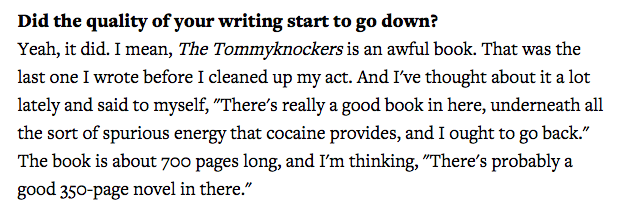
Image Courtesy of Rolling Stone
It’s highly unlikely to find a literary agent who’ll represent your 300,000 word novel. That’s because they understand what sells and what doesn’t. A bloated manuscript falls into the latter.
Even if you’re planning to self-publish, it’s a good idea to stay within these guidelines. Always keep in mind the attention level of an average reader. Will the reader want to drift through hundreds of pages of character development and backstory when your story could be told in fewer words?
Here’s a free downloadable checklist to help you identify whether your manuscript is ready for edit. Subscribe to receive this extra resource.
You Haven’t Read It Out loud
Reading a manuscript out loud may sound like a huge waste of time, but you will be surprised just how many oopsies you can catch when you hear your words instead of think them.
Reading out loud also helps with pacing. For example, when you’re detailing an action scene, is your sentence structure snappy and quick (i.e. short)? Or are you using run-on sentences that slow the reader down?
What may not be obvious to your stale eyes is clear as a bell when you hear it with fresh ears.
It’s going to require time to read your manuscript out loud. I recommend breaking it up over days or weeks, reading a few pages or a chapter at a time.
Sometimes, it helps to zone out when you’re reading out loud and not stop for correction. Record the reading session on your phone and then replay at a later date while following along on your manuscript. Pause and edit as you go.
No One Else Has Read It
Okay, maybe your best friend has read it, but if we’re being honest here, your loved ones probably can’t provide the type of critique you need to grow. Either they’re afraid of hurting your feelings or they simply don’t know what to look for in a manuscript.
What to do instead? Join a writing community.
Joining a writing community is one of the best ways to keep your sanity as a writer. There’s nothing quite as refreshing and reassuring as being around other writers who understand the struggles you’re going through with crafting your novel.
Beyond that, you can ask fellow members to critique your manuscript in part or as a whole. The feedback a fellow writer can provide may help you course correct and identify your weak points.
While they won’t provide the comprehensive edit that a professional editor can provide, a writer’s critique can point you in the right direction.
For more information about writing communities (and the top 11 to join), check out this post here.
It’s Still The First Draft
Ernest Hemingway summed it up best:
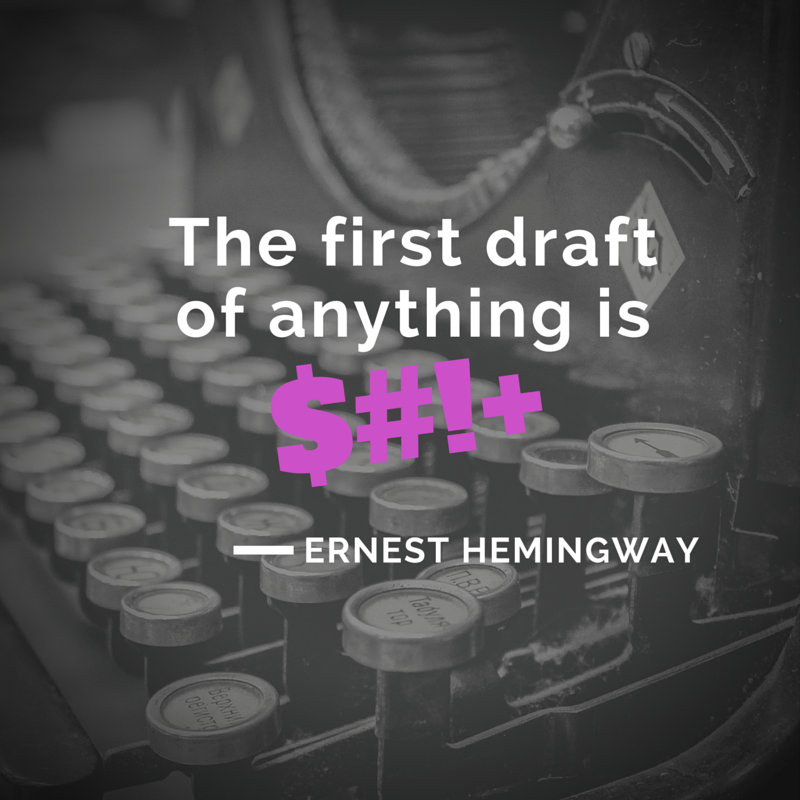
The first draft of anything is $#!+ --Ernest Hemingway
You’ve written something absolutely breathtaking. It’s epic in every way. But if it’s still your first draft, there’s plenty of room for improvement.
I can hear your groans from way over here, but it’s true.
After you get the first draft out of the way, you’ll have a better, clearer understanding of the story. Most writers learn the story as they go along. Now that you know what’s going to happen, you can clean up loose ends and sharpen the narrative. Add hints and foreshadowing to reward the observant reader.
No matter how much you love your first draft, your second, third, or even fourth is going to be an upgrade.
You Haven’t Taken Time Away From It
When you write a story, you get engrossed in its world. The characters are extremely real to you and you care about what happens to them.
Your reader doesn’t—at least not yet. Your reader comes as a blank slate who must be compelled by your sharp storytelling. Unless you’ve drawn it before their eyes, they can’t see the world you’ve created as you do.
That’s the purpose of taking a break.
Time offers perspective. After you’ve written a story, step away for a week, a month, or even longer. (The longer you wait, the better.)
When you return, you’ll bring a totally different mindset that will help you see your story more objectively.
You’ll identify whether something grabs you or whether it’s just fluff. You’ll edit with a brand new braveness. There’s nothing like time to heal all wounds.
You Have a Prologue
You know how we talked about killing your darlings? Now, we’re turning our attention to prologues. Kill your prologues. In most cases, a prologue represents lazy writing.
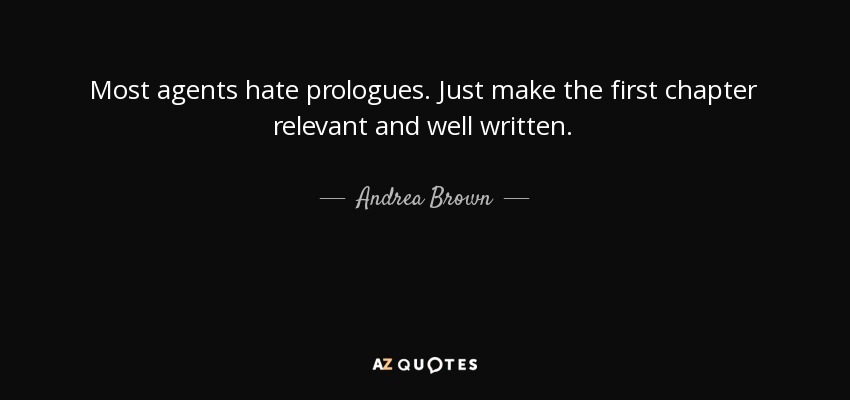
According to author Nathan Bransford, “A prologue makes a reader start a book twice.” And he should know—he’s also a former literary agent.
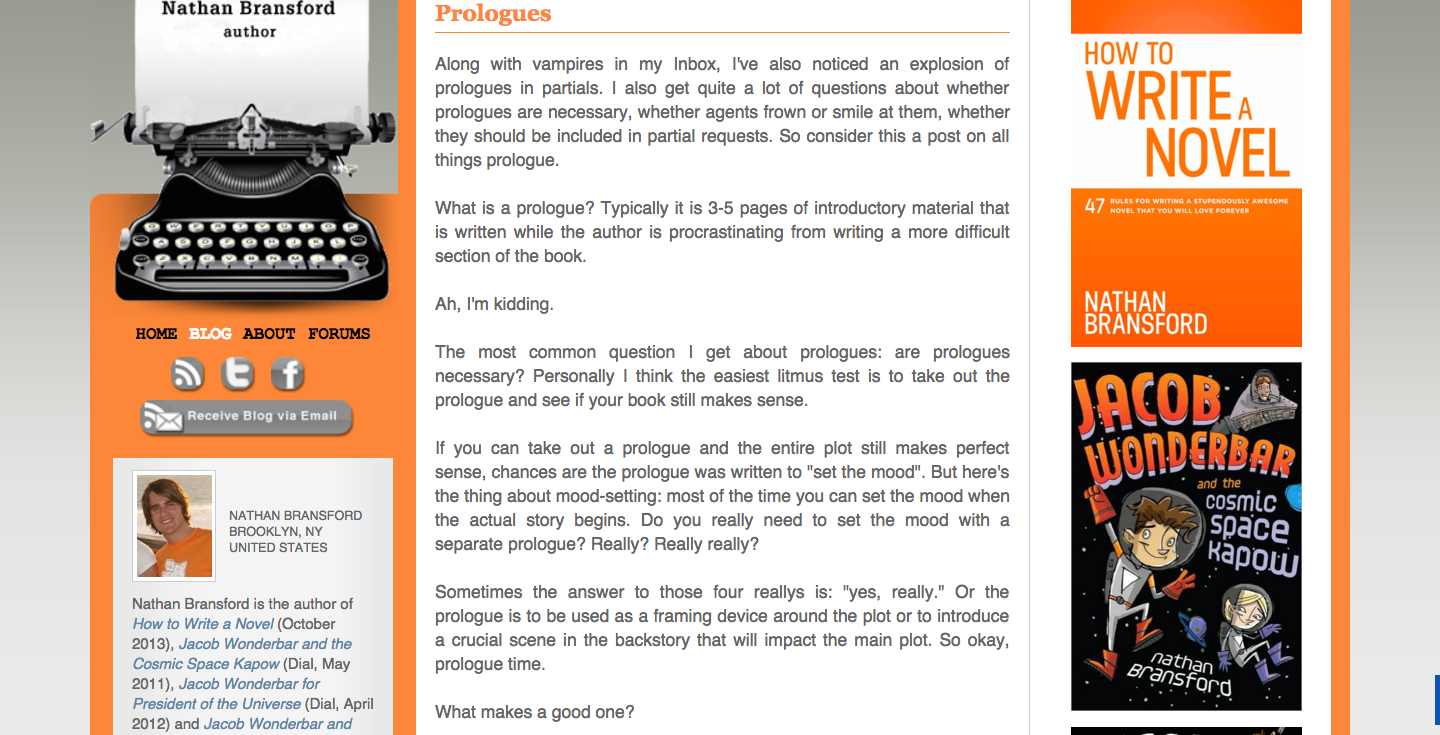
Need more convincing? Author Ava Jae also says that a prologue is mostly unnecessary in her post, 7 Signs You Should Cut Your Prologue.
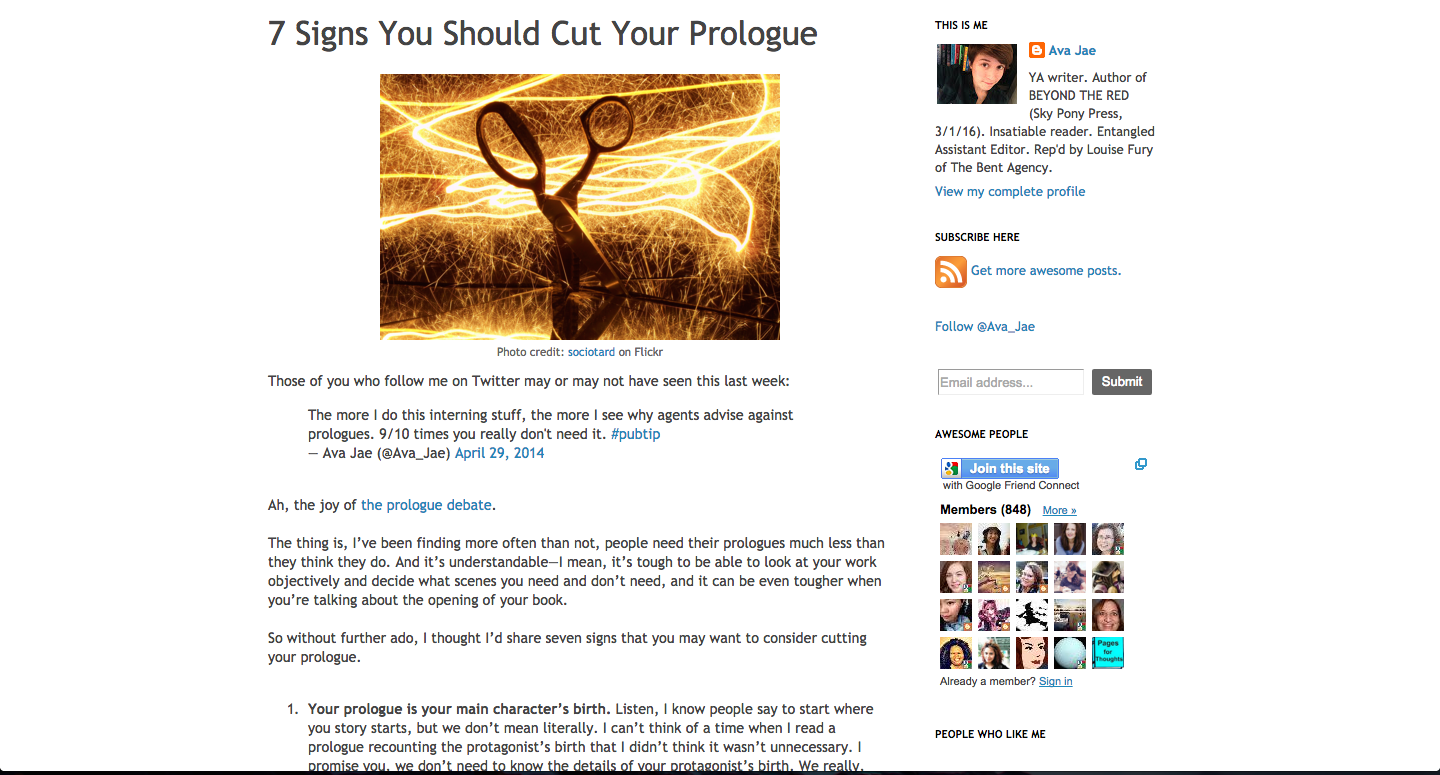
See? I’m not the only one.
In most cases, a prologue can be incorporated into the manuscript as backstory. If you’re not sure what to do, slash it and see if your story makes sense without it. If it doesn’t, it’s time to develop your story more.
Final Thoughts
Yes, I know you’re eager to send your manuscript off for edit. But it’s not a process you want to rush. Follow these tips to help tighten your manuscript before sending it off, and you’ll make the process easier for yourself in the long run!
Here’s a free downloadable checklist to help you identify whether your manuscript is ready for edit. Subscribe to receive this extra resource.
